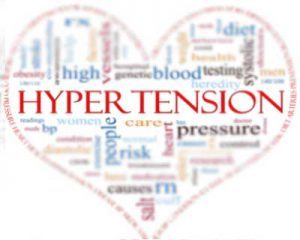- Home
- Editorial
- News
- Practice Guidelines
- Anesthesiology Guidelines
- Cancer Guidelines
- Cardiac Sciences Guidelines
- Critical Care Guidelines
- Dentistry Guidelines
- Dermatology Guidelines
- Diabetes and Endo Guidelines
- Diagnostics Guidelines
- ENT Guidelines
- Featured Practice Guidelines
- Gastroenterology Guidelines
- Geriatrics Guidelines
- Medicine Guidelines
- Nephrology Guidelines
- Neurosciences Guidelines
- Obs and Gynae Guidelines
- Ophthalmology Guidelines
- Orthopaedics Guidelines
- Paediatrics Guidelines
- Psychiatry Guidelines
- Pulmonology Guidelines
- Radiology Guidelines
- Surgery Guidelines
- Urology Guidelines
Hypertension damages kidneys and heart, say doctors

About 20 per cent of India's youth suffer from hypertension which makes them 40 percent more vulnerable to kidney damage and cardiac arrest, said doctors.
There is little understanding in the country of hypertension, also known as high blood pressure, which usually does not cause symptoms but gradually affects various body parts, they said.
"As many youngsters do not get to know that they are hypertensive they continue with their sedentary lifestyle," said Gireesh Manwani, Senior Consultant (internal medicine), Saroj Super Speciality Hospital here.
"This slowly and steadily damages the kidneys and heart apart from giving rise to various other problems; it could even be fatal," he said.
The medical system in India has so far proven unequal to the task of dealing with the youths falling victims to hypertension and other health complications triggered by it including brain haemorrhage, Manwani said.
About 95 per cent of the young people become hypertensive due to excess smoking, lack of proper sleep, drinking, polluted air and long working hours.
"Untreated hypertension damages the heart, kidneys and can lead to life-threatening complications like heart disease, stroke or kidney problems. It is called 'the silent killer' because symptoms generally appear only after the disease has caused damage to the vital organs," said Manwani.
One in four people above 25 years in India has hypertension and it is increasing at an alarming pace, he said.
"Reducing salt intake, stopping tobacco use, reducing stress by slowing down, yoga or meditation and increasing physical activity are some of the key strategies to reduce high blood pressure," added Manwani.
Zainab Naqvi, a doctor at the All India Institute of Medical Sciences (AIIMS), said that over 50 per cent of the sufferers are not aware of that they have elevated blood pressure.
"Hypertension makes blood vessels in brain develop bulges (aneurysms) and weak spots due to high pressure, making them more likely to clog and burst. The increased pressure in blood vessels can also cause blood to leak out into the brain, causing stroke," said Naqvi.
Naqvi urged youngsters to keep a tab on their blood pressure as only rarely does high blood pressure cause symptoms like headaches or giddiness.
Next Story
NO DATA FOUND

Disclaimer: This site is primarily intended for healthcare professionals. Any content/information on this website does not replace the advice of medical and/or health professionals and should not be construed as medical/diagnostic advice/endorsement or prescription. Use of this site is subject to our terms of use, privacy policy, advertisement policy. © 2020 Minerva Medical Treatment Pvt Ltd